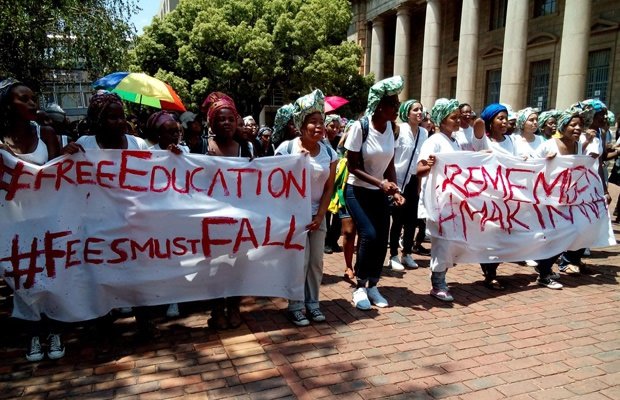As a kid, daily suspension of education is a positive surprise. However, in South Africa, the clashes between police and the protesting students have forced several universities to suspend the daily program for the second time in less than a month. The protests are expected to continue for at least the coming month as many black students see the cost of university education as a prohibitive factor. Two decades after the apartheid ended, feelings about inequality seem to have risen once again.
The discussion that has been started seem to have a future positive effect for the black students, as the cost of education may be decreased. However, might we miss a significant disadvantage of all these protests? Adverse selection might be on hand.
Universities are enduring enormous pressure to cut cost. The hashtags #feesmustfall and #freeeducation have become normal on Twitter in South Africa. However, the learning and teaching environment have taken a hostile character. The protests can affect the image of the universities and discourage future teachers and students (Reuters, 2016).
Mr. Akerlof (1970) explained the phenomenon of adverse selection through the car market. Buyers could not distinguish the high-quality car from an average car. The price that they are willing to pay equals the average of the high and normal quality car together. However, the companies that sell the high-quality cars will be aware of the value of these cars. So they will not sell below the appropriate value. The consequence is that the sellers of high-quality cars will leave the market. The remaining cars will be of average and poor quality.
The same situation is developing in South Africa. Instead of cars, the adverse selection is relevant towards the students and lecturers of the various universities. Normally, Universities are populated by below average and above average students and lecturers. However, when the environment of the university is changing towards a high risk, because for example the student protests. This hostile environment will be more desirable to the below average students and lecturers. For the reason that they are not able to gain access to the above average universities where the environment has a considerably lower risk.
These kind of environments are a danger because of the opportunities it will create. The high-risk environments of the Universities will be suitable for the below average students and below average lecturers. Thus, the remaining above average students and lecturers will try to find other options. The demand for private intuitions might be able to rise, and this can lead to the decline of the quality of the South African universities.
#educationstandardswillfall
References
Akerlof, GA., 1970, The market for ‘lemons’: Quality and the market mechanism, Quarterly Journal of Economics 84, 488-500.
http://www.reuters.com/article/us-safrica-protests-idUSKCN1250JJ

